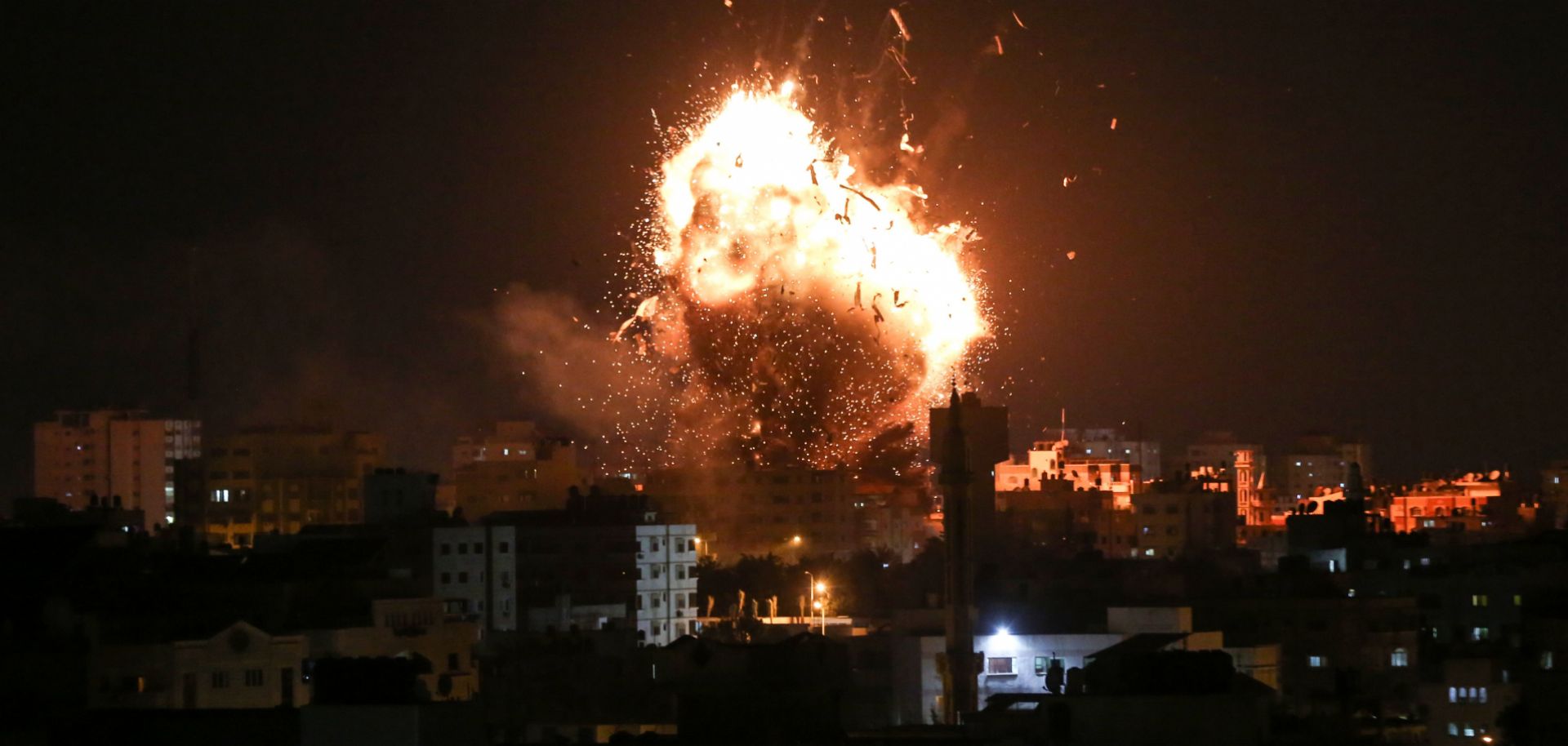GLOBAL PERSPECTIVES
When Israel and Hamas Stop Short of War in Gaza
Nov 16, 2018 | 17:37 GMT

An Israeli airstrike hits Hamas' Al-Aqsa TV station in the Gaza Strip on Nov. 12. This week's fighting and cease-fire between Palestinian militants and Israel underscore the nature and causes of escalations in the Gaza Strip.
(BASHAR TALEB/AFP/Getty Images)
Highlights
- This week's fighting and cease-fire between militants in the Gaza Strip and Israel underscore the nature and causes of escalations in the Palestinian territory.
- Both Hamas and the Israeli government have an interest in maintaining their respective leadership positions; it is one of many factors that determine how they choose to respond to events in Gaza.
- Individual incidents in Gaza may produce escalating clashes, but both sides in the conflict will seek to avoid high-intensity conflict as long as it doesn't serve their higher interests.
Subscribe Now
SubscribeAlready have an account?
